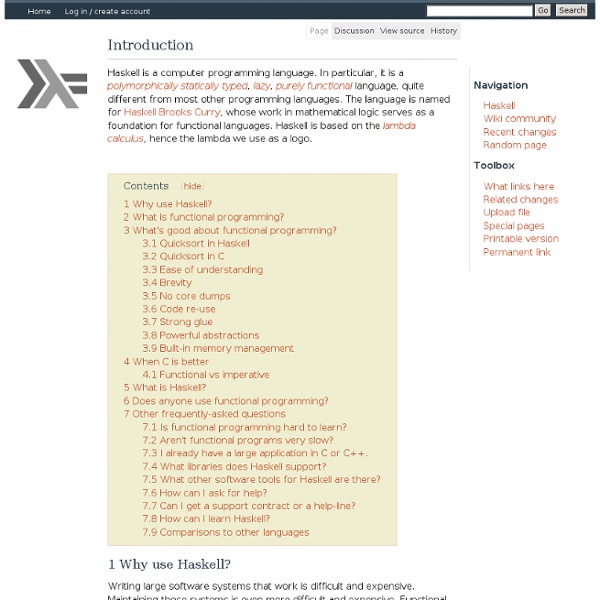Haskell

Home - D Programming Language
The Julia Language
How to learn Haskell
How This Guide Works So you want learn Haskell, and somehow or another you've ended up at this page. Good! If you have any questions or comments, the authors would love to hear from you! Starting Out Make sure you understand the reasons for learning Haskell Unlike some modern languages, Haskell is not a language you will pick up in two days and then be able to write your homework 10x faster in. Installing and running Haskell The first thing you should do is install a Haskell compiler/interpreter on your system. Resources:The Haskell Wiki has an enormous collection of tutorials, papers, and other resources for the aspiring Haskeller.Haskell in 5 Steps talks about how to get Haskell on your computer and start writing programsReal World Haskell's guide to installing and running GHC Editors & GHCI To make the most of the code examples you find, you should set up a good editor environment for yourself. Raghu has pointed out that haskell-mode is much easier to set up in emacs than xemacs. a = 5
Related:
Related:



